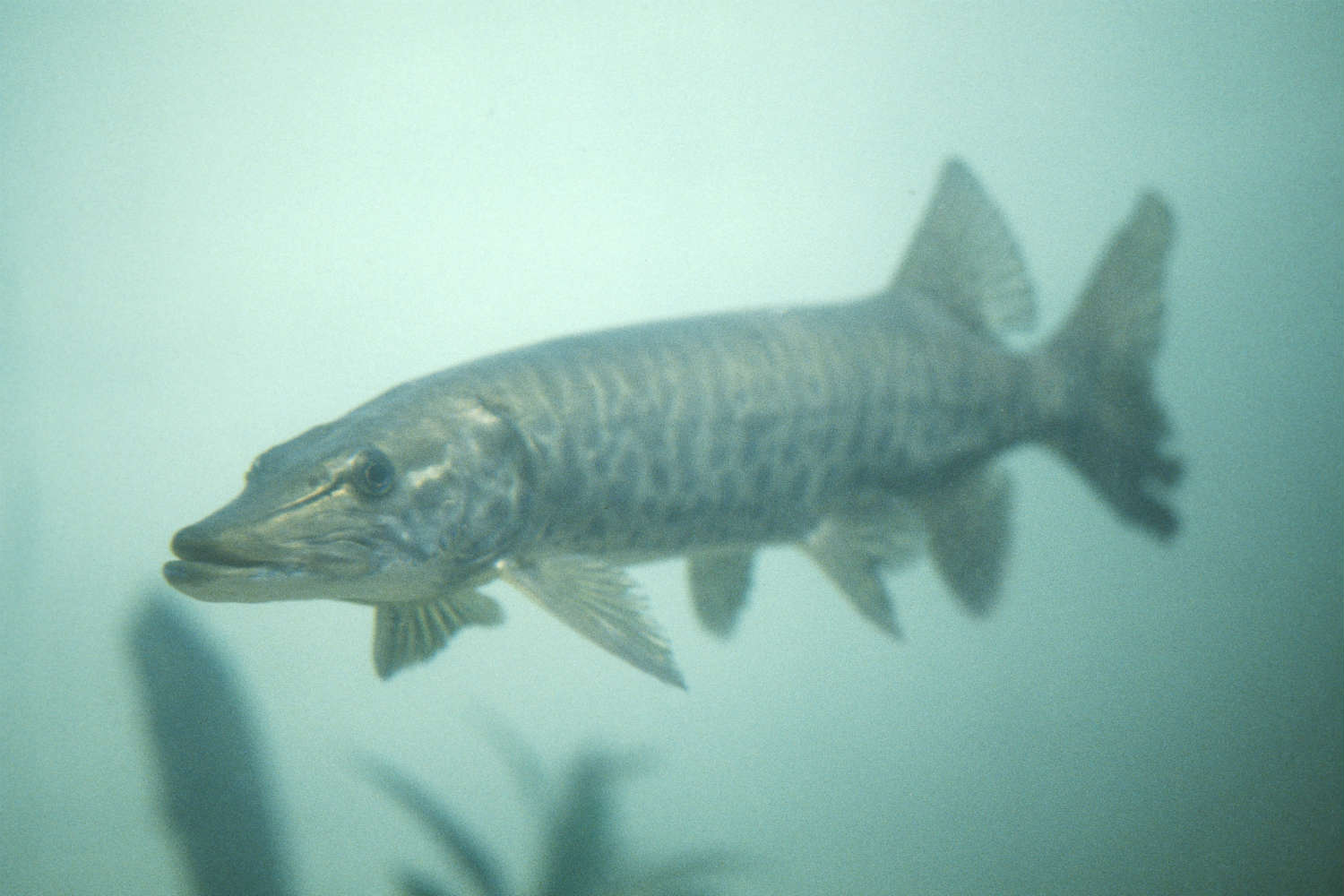
The North American freshwater fish known as muskellunge—muskies, for short—are notoriously elusive and difficult to catch. “They’re known as ‘the fish of a ten thousand casts,'” says EPA fisheries scientist Ted Angradi, and an enormous body of lore has grown up around how to improve the chance of pulling one in. One technique—fishing during the full or the new moon—dates back to Native American anglers who fished the muskie’s home waters, mostly in the northern Great Lakes region.
As scientists and avid fishermen themselves, however, Angradi and his fishing buddy Mark Vinson, who studies fisheries out of the U.S. Geological Survey’s Lake Superior Biological Center in Wisconsin, wondered if they could bring some scientific rigor to the question.
The result: a paper titled Muskie Lunacy, which is just out in the journal PLOS One. The moon does give fishermen an edge on snagging muskies (whose formal name, for the record, comes from the Ojibwa word “maashkinoozhe,” or “ugly pike”). “The effect is at the margin,” says Angradi. “At best it improves your chances by five percent. But any little edge makes a difference.”
To put hard numbers to that edge, Angradi and Vinson went to the definitive muskie database, complied by—who else?—Muskies Inc. “We’d been thinking about the moon effect for some time,” says Vinson, “but then we came across this data set that looked phenomenal.” In the end, they crunched 341,959 muskie catch records from 1970 through 2013, which included data on location, date and time of the catch, size of the fish, and more. (Fish-rights advocates please note: more than 99% of the victims were released, which is part of the muskie-fishing ethic. “Anglers consider each fish important,” says Angradi. “It doesn’t make any sense to kill them.”)
In the end, it turned out that the moon really does have an effect. If you fish during the day, as 90% of anglers do, you’ll boost your chances of a catch by 5% if you go out during either the new or the full moon. If you fish at night, you get the same increase, but only during the full moon.
What the study doesn’t answer is why. One theory: “It might have something to do with feeding behavior,” says Vinson. Muskies are top predators, and it could be that the fish they feed on are more abundant during the full and new moon. The two fishing buddies are planning to test that hypothesis by looking at another data set. It’s a catalogue of 50,000 fish stomachs, which could give a clue about whether these tend to be fuller during the relevant parts of the lunar cycle. “These are lake trout,” says Vinson, “but they’re also top predators.” The same behavioral rules, in short, could well apply.
If the theory pans out, of course, it begs the question of why smaller fish are more abundant during the new and full moon. There should be plenty to keep Angradi and Vinson fishing for years.
More Must-Reads From TIME
- The 100 Most Influential People of 2024
- The Revolution of Yulia Navalnaya
- 6 Compliments That Land Every Time
- What's the Deal With the Bitcoin Halving?
- If You're Dating Right Now , You're Brave: Column
- The AI That Could Heal a Divided Internet
- Fallout Is a Brilliant Model for the Future of Video Game Adaptations
- Want Weekly Recs on What to Watch, Read, and More? Sign Up for Worth Your Time
Contact us at letters@time.com